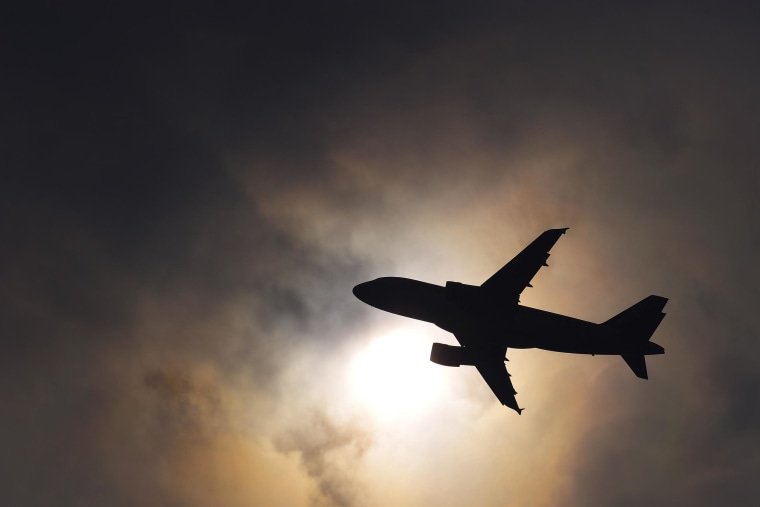The aircraft of tomorrow won't just take you from London to New York and Tokyo; it should allow you to stay connected all the way.
That's not just passengers, but the pilots and ground staff too — a development that's likely to transform air travel, says Honeywell, a technology and manufacturing firm that develops a variety of systems and services for aircraft.
"From a passenger perspective, it means you won't see much difference in service from when you walk into an airport on your iPhone at high speed and you walk onto a plane," Jack Jacobs, the vice president for safety and information management at Honeywell Aerospace told CNBC. "That's not the way it is today."
He added: "From a pilot and crew perspective, they will be able to rely on much more information on the plane that wasn't there before that allows them to fly safely, avoid bad weather, turbulence — well in advance of what they can do today."
Just how connected an aircraft is to air traffic control has been in the spotlight in recent weeks following the disappearance of Flight MH370 to Beijing in China from Kuala Lumpur in Malaysia on March 8.
Jacobs said that while there is some degree of connectivity on aircraft today, the last piece of the puzzle is providing a high speed link at a lower cost.
Honeywell says it is the leader when it comes to making equipment for in-flight Wi-Fi services. In February, the U.S. firm and Air China signed an agreement to test a new high-bandwidth system in 2015 and it is in discussions with other airlines about introducing the new systems.
It says that the new technology to enhance connectivity can be included in upgrades to existing aircraft as well as new planes.
"From a passenger perspective, it means you won't see much difference in service from when you walk into an airport on your iPhone at high speed and you walk onto a plane."
Being hooked up to the internet or mobile phone network appears to have become a pressing need for many airplane passengers.
According to industry consultancy IMDC, the number of aircraft equipped with passenger connectivity systems will double to more than 4,000 by 2016.
In a survey of more than 3,000 adults in the U.S., U.K, and Singapore surveyed by Honeywell last year, more than one-third of Singaporeans and Americans, and nearly half of Britons said they would give up a preferred seat for a better Internet connection.
"With the connectivity we have today on a flight you can do basic email, but if you want to stream video or play Xbox Live or have a conference call, you're not going to be able to do that. The bandwidth does not make it possible. But as the systems we're working on become live, you'll be able to stream video and satisfy passengers from a kid to a business person," said Jacobs.
Analysts say the amount of data created during a flight can also be put to better use with better connectivity, turning an airplane into an 'intelligent aircraft.'
"The pilot today relies pretty much on the information they see in front of them, which is navigation equipment and so on," said Jacobs. "As we go forward, that high-speed connection means they could be getting information real time. They could ask a plane a thousand miles away or three planes ahead what the weather is like."
Jacobs said another benefit from a more connected aircraft would be its ability to relay essential information back to ground staff.
"We're enabling technology now that allows a piece of equipment on the plane to relay information to the home base before you land that says be ready I'm coming or I need you to fix me," he said.
